They say it takes 10,000 hours to master a skill and no doubt this is also true with video games. However, does sinking more hours into Dota 2 really raise your chances of being a great player? Here we will have a look at a sample of casual Dota 2 players and see if we can separate fact from fiction. All data is gathered from Dotabuff.com and takes into account players with 500 to 3500 hours of time played.
Is more actually better?
To figure this out, let’s take the stats of the 100 top rank players listed on Dotabuff and do some simple analysis. To start off, though, I want to have a little example, so the method is clear. Let’s take those same 100 players and plot their win rate (% of games) with respect to the kill, death, assist ratio.
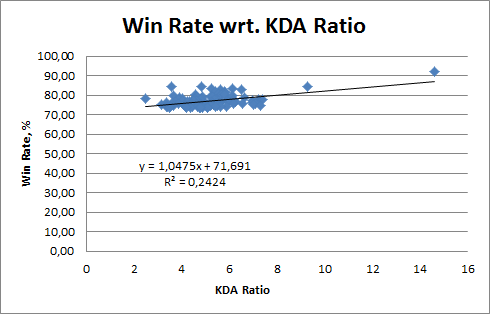
So, in the graph we can see a clear relation between the two – the more kills and assists the player realizes per death, the bigger the portion of matches he or she wins. The math works out at around a 1% increase in the win rate for each point of KDA. So that’s straight forward – on average, the better you are at killing, the more likely it is that you’ll win.
Now, what about the link between the win rate and the total amount of hours the player has spent on Dota 2? Surely, the more you play, the better you get at the game, especially in the first hours, when you are learning the ropes. However, does this extend into the later stages of the learning curve? Well, let’s have a look.
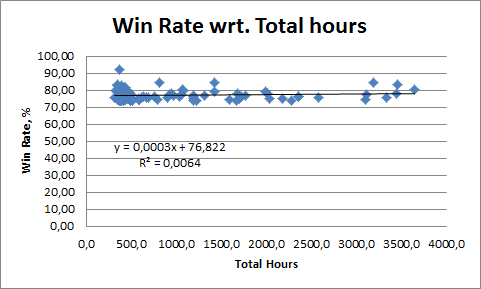
Can you see it? I certainly can’t. Upon examination, it becomes painfully obvious that the variation in win rates can not be explained by the players experience. One can see players with win rates exceeding 80% all the way from 500h to 3500h of experience.
One might say that the win rate is far from a good proxy for the overall skill of the players. The key critique here is that the win ratio depends a lot more on the teams performance and a lot less on the individual players skill. Moreover, this method can not take out the effect of smurfs (players creating extra accounts, thus presenting themselves as less experienced). With that in mind, let us examine our other handy proxy – the KDA ratio.

Unfortunately, the numbers here show a similar situation.. While there is a small increase of the KDA, associated with more experience, the overall effect seems negligible. Moreover, the players with less than 1000h of experience obviously can have a relatively high KDA ratio. Presumably this is due to concentrating on individual rather than team play. However, there is next to no indication that spending those extra 3000h on Dota 2 will make you any more efficient at massacring enemies. The drawback to this data is that Dota 2 has many roles. A hard carry position is likely to get many kills, while a support, even with a pro at the wheel, will possibly have no kills at all.
I was not happy with this result, so I decided to get another bunch of data, this time the people who have played the most amount of matches according to Dotabuff. Here is what I got from this bunch of 100 players:
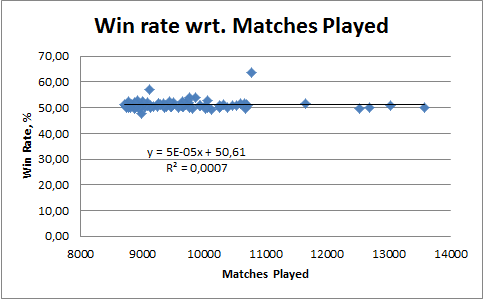
Nothing. Virtually no relation what so ever…
The inconvenient truth seems to be that after around 500 hours, or 1000 matches of practice, the direct return of those hours grinds to a complete halt. Even if you sink another 3000 hours in the game..
I will revisit this conclusion at the end, however now I want to do some numbers that might actually help you guys. So – there must be some actual relations we can find in the players data, right?
Well – here is a good one. According to the numbers, more experienced players are likely to finish their matches faster. Here is the relation:
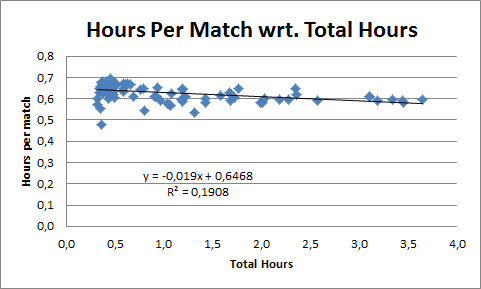
What we can see is that each thousand hours of experience reduces the length of the players average match by around 70 seconds. This might seem like a very slight reduction, however the trend is quite noticeable. If you compare a complete newbie and guy with 3500h under his belt, the difference will be around 4 minutes or 10% of the match. So here is a little top tip – if you want to learn from the best, learn to cut the games short.
So, experience does not matter?!
Well. Surely it does. Every hour you spend playing let’s you learn more strategies and master more skills for more heroes. However, when looking through the averages, there seems to be next to no indication that more experienced players are necessarily better at playing, in terms of match wins and KDA ratios. The lesson here then is that how much time you spend playing matters precious little. If you want to get better at Dota 2, immerse yourself in the game and be methodical.
Concentrate on developing your strategies and play with improvement in mind, rather than just clicking away, hoping for fairy pixies to come and improve your play after 10,000 hours.
If you found this interesting, leave a comment with any extra questions you pondered. If not – tell me where I went wrong!

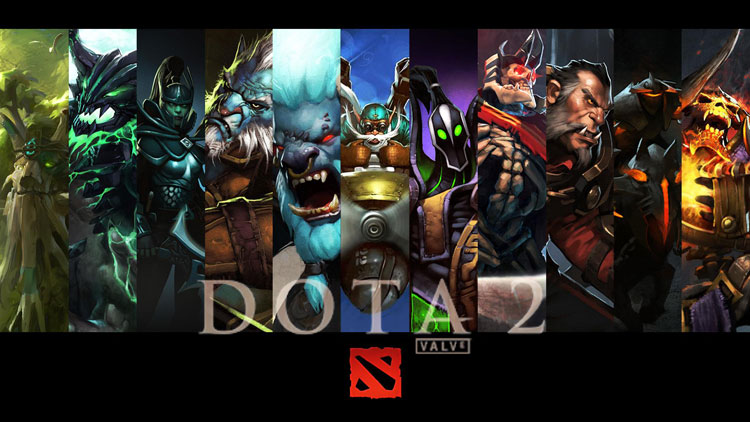




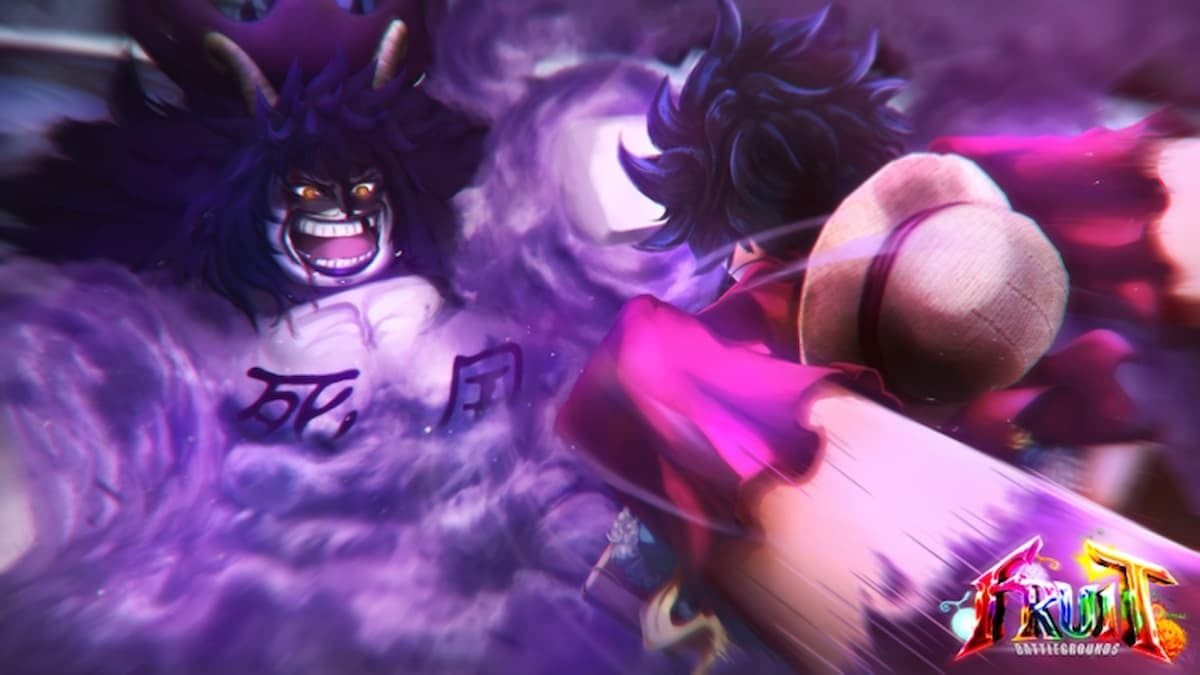
Published: Feb 28, 2016 04:31 pm